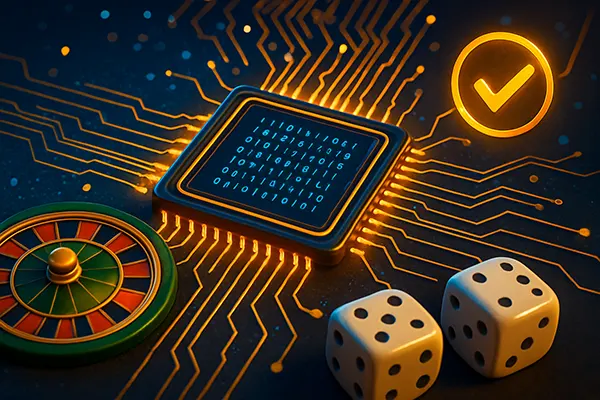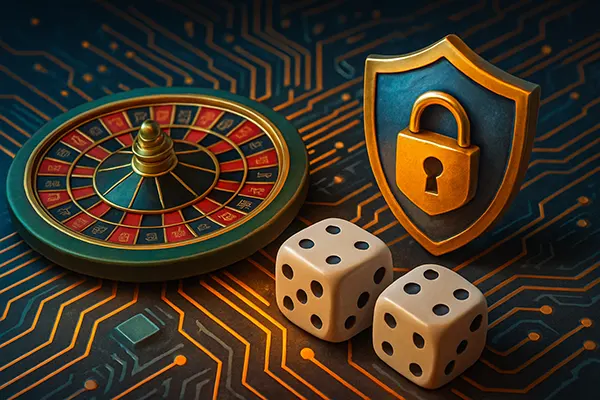
How RNG Works: Myths and Realities of the Random Number Generator
The Random Number Generator (RNG) is the hidden mechanism that ensures fairness and unpredictability in digital games, especially in the gambling industry. Despite its importance, RNG is often surrounded by myths that confuse players and create mistrust. To understand how it really functions in 2025, we need to separate misconceptions from the facts established by technology and independent regulators.
The Core Principles of RNG
At its heart, an RNG is a mathematical algorithm that produces sequences of numbers with no discernible pattern. These sequences determine game outcomes, from the spin of a roulette wheel to the fall of slot reels. By design, they mimic true randomness and are continuously tested to prevent predictability.
Modern RNGs are not simply random guesses but use complex seed values, often derived from environmental data such as time stamps, system processes, or even atmospheric noise. This creates results that cannot be duplicated by players or operators. The core function is to keep every round independent from the last.
Regulatory authorities across Europe and other regions enforce strict testing protocols for RNGs. Independent laboratories, such as eCOGRA and iTech Labs, certify that RNGs meet fairness standards. Their audits involve statistical testing to ensure that the results are unbiased and mathematically unpredictable.
Common Misconceptions about RNG
One widespread myth is that operators can change the outcome of a game in real time. In reality, licensed operators cannot alter RNG results. Regulators impose heavy penalties for tampering, and certified systems are shielded against interference. Once a game round begins, its result is already determined by the algorithm.
Another myth is that machines “heat up” or “cool down” over time. Players sometimes believe a slot is more likely to pay out after long dry spells, but each spin is independent. The RNG does not track history and does not favour or punish any player. Probability remains the same regardless of past results.
A third misconception is that winning patterns can be predicted. Despite strategies circulating online, no player can predict RNG outputs. The mathematical complexity ensures that outcomes cannot be reverse-engineered, protecting fairness for all participants.
RNG in Today’s Digital Gambling Industry
In 2025, RNG technology has become more advanced with the integration of cryptographic methods. These strengthen security, making manipulation even harder. Many software developers now use hybrid RNGs that combine deterministic algorithms with external entropy sources, ensuring enhanced randomness.
Online casinos are required to display certification seals to prove the legitimacy of their RNG systems. This transparency reassures players that outcomes are fair and not influenced by operators. Certifications are renewed annually to maintain compliance with evolving standards.
Some modern games even allow players to access “provably fair” systems, especially in blockchain-based gambling. These systems let players verify outcomes independently, creating a new level of trust between users and providers.
How RNG Testing Works
Testing RNGs involves multiple layers of statistical analysis. Labs run millions of simulated rounds to check whether the distribution of results matches expected probabilities. Tests such as the Chi-Square, Serial Correlation, and Runs Test are applied to validate unpredictability.
In addition to mathematical checks, software is inspected for secure implementation. Source code is reviewed to ensure no hidden functions can bias results. Once an RNG passes these tests, it receives certification valid for a limited period, ensuring periodic re-assessment.
This rigorous testing guarantees that games remain fair and secure, no matter how often they are played. It also reassures regulators and players alike that integrity is preserved at all stages of digital gambling.

The Future of RNG and Player Trust
Looking forward, RNG systems are likely to integrate artificial intelligence and quantum-based randomness. Quantum RNGs, already in experimental use, rely on unpredictable quantum processes to generate outcomes. This could set new standards of fairness in the industry.
Transparency will remain central to maintaining trust. Operators that provide clear explanations about their RNGs, along with visible certifications, will continue to be recognised as reliable. Regulators will likely demand even stricter disclosure requirements in the coming years.
For players, understanding RNG mechanics reduces suspicion and enhances confidence. By knowing that outcomes are both independently tested and scientifically unpredictable, they can engage with digital games responsibly and with realistic expectations.
Responsible Play and RNG Awareness
RNG technology ensures fairness, but it does not guarantee wins. Players should remember that randomness works equally for everyone, and results cannot be influenced. This understanding can help in maintaining healthy gambling habits and preventing misconceptions about “lucky streaks.”
Educating users about RNG also contributes to responsible play. When players know how outcomes are generated, they are less likely to fall for misleading claims about “winning strategies.” This knowledge fosters informed decisions and realistic engagement with games.
Ultimately, RNG awareness is a cornerstone of responsible gambling. By separating myths from facts, players can enjoy entertainment while understanding that fairness is safeguarded by technology, regulation, and transparency.



